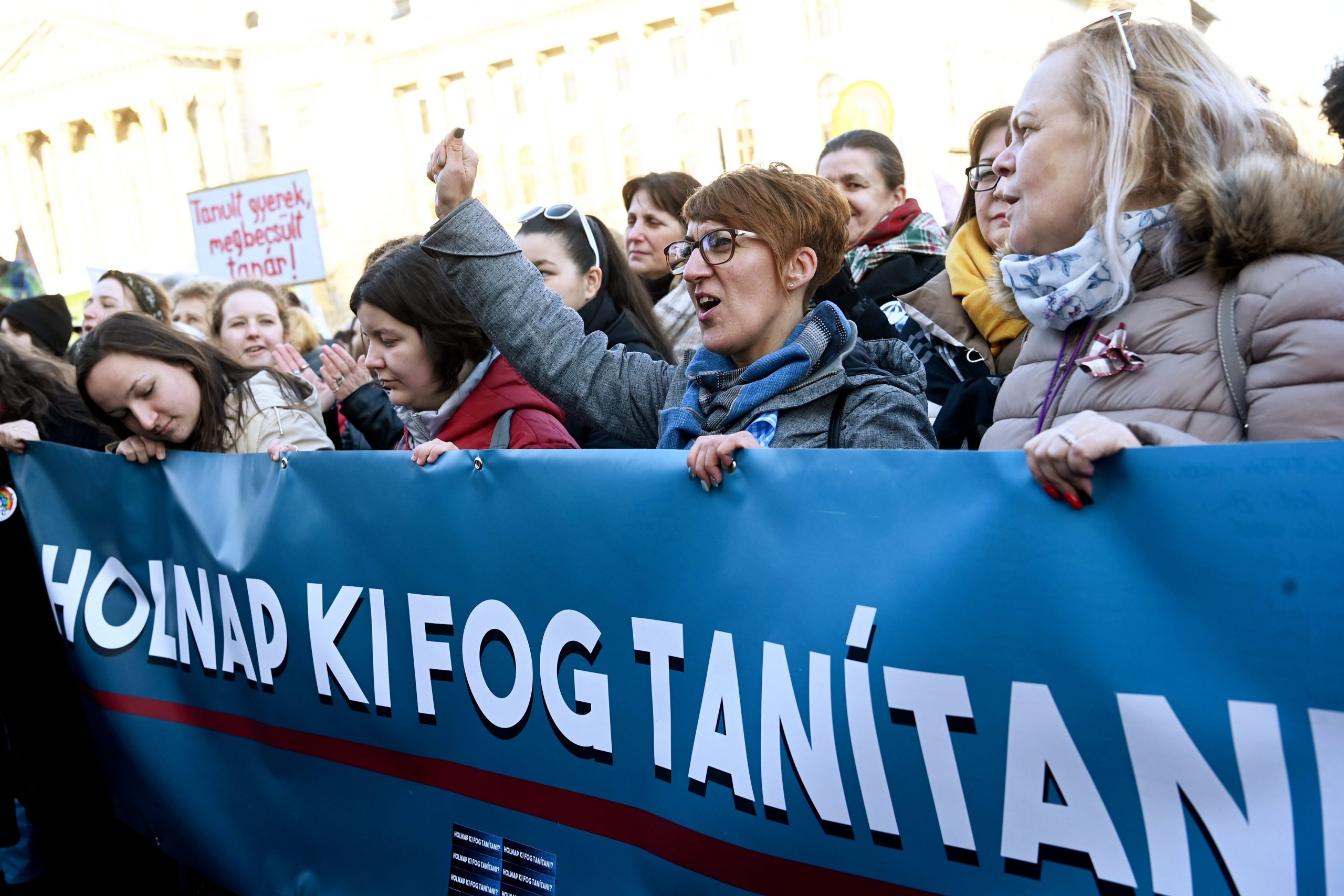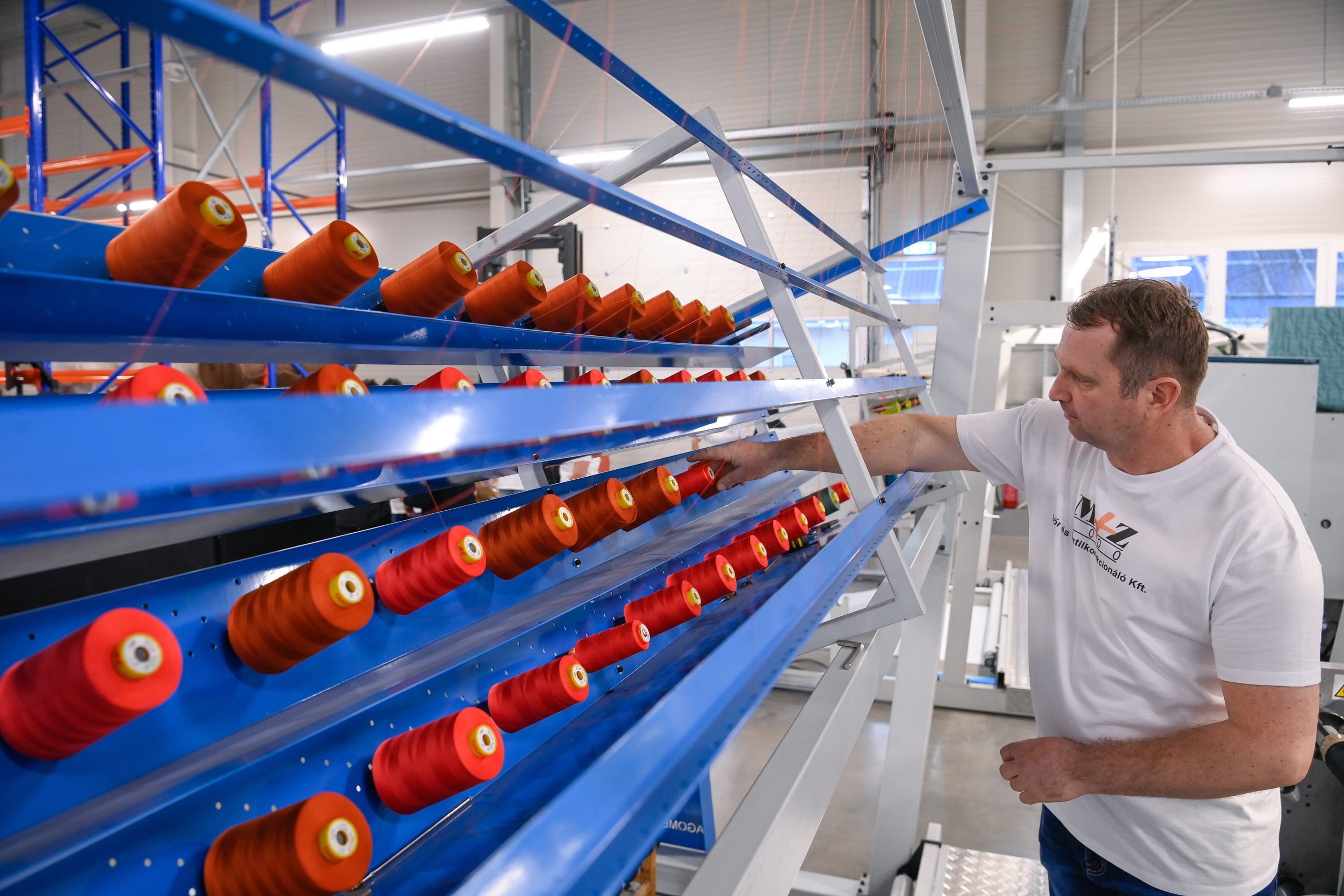
Erzsébet Nagy of teachers' union PDSZ said the public education system "fell apart long ago" but is being "held together by the professionalism of teachers".Continue reading

Wages grew by an annual 13.7 percent in January, up from 9.7 percent in December, the fastest growth in 18 months, the Central Statistical Office (KSH) said on Monday.
The growth was driven by bigger public sector paycheques and a minimum wage rise, KSH said.
The average gross wage for full-time employees at businesses with at least five people on payroll was 467,300 forints (EUR 1,250). The average net wage was 310,700 forints.
Real wage growth was 5.4 percent, calculating with January CPI of 7.9 percent.
Excluding the 78,800 Hungarians working full time in fostered work programmes – who earned on average gross 98,500 forints in January – the average gross monthly wage in Hungary was 477,700 forints.
The average gross wage in the business sector, which includes state-owned companies, rose by 12.5 percent to 477,200 forints, excluding fostered workers. The average gross wage in the public sector, excluding fostered workers, rose by 12.3 percent to 474,900 forints.
In the non-profit sector, the average gross wage, without fostered workers, jumped by 30.3 percent to 493,600 forints, as a number of people working in education who were earlier counted in the public sector were reclassified.
A broader set of data covering all full-time employees, not only the ones at employers with a payroll of five or more, show the average gross wage stood at 454,800 forints and the average net wage at 302,400 forints in January. The median gross wage was 360,700 forints.
Excluding fostered workers, full-timers earned a gross monthly 464,300 forints and net 308,700 forints.
People working in the financial and insurance sector were the highest earners in January, getting a gross monthly 785,200 forint paycheque on average. People working in commercial accommodations and catering earned the least: 303,300 forints on average.
January data show men earned, on average, 18.9 percent more than women during the period.
ING Bank chief analyst Péter Virovácz said full-year wage growth could be around 15 percent, in spite of the war. He added that a rise in purchasing power would be constrained by inflation which could climb over 9 percent.
Takarékbank senior analyst András Horváth said annual average wage growth could reach 13 percent, supported by the over 19 percent increase in the statutory minimum wage.
featured image via Zsolt Czeglédi/MTI